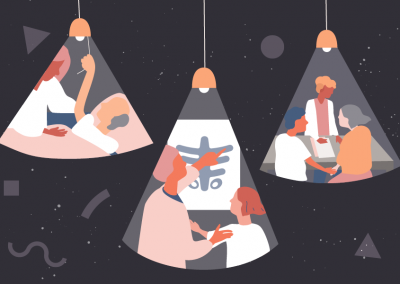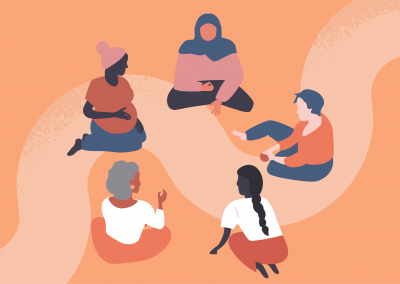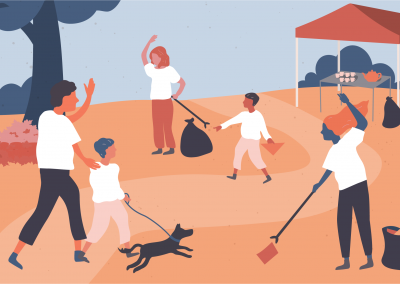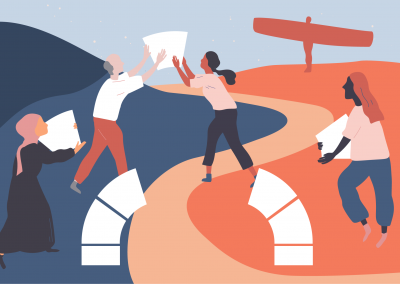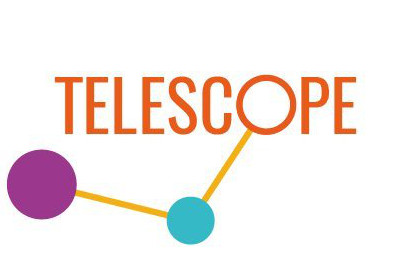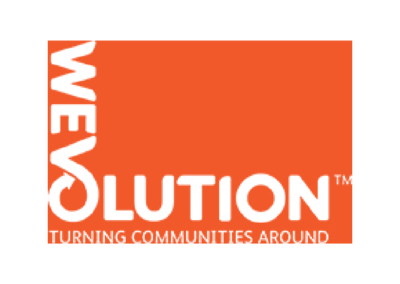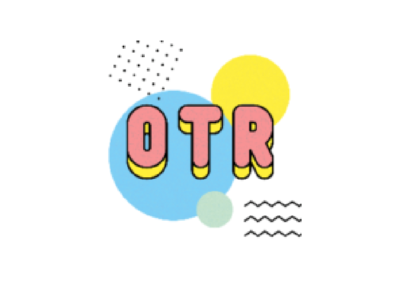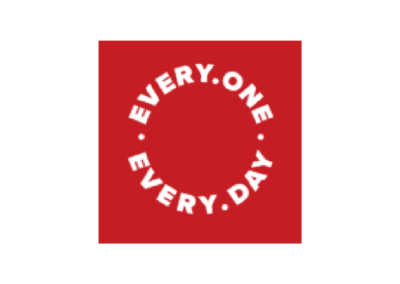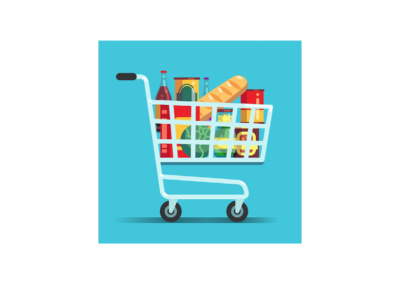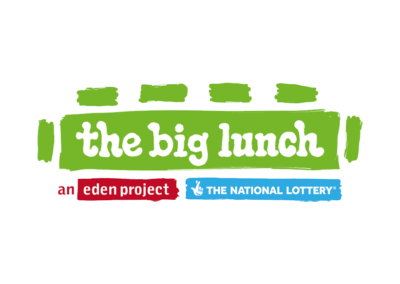Case study: Supermarkets
Relationship-centred design in supermarkets: does it check out?
Introducing RCD in supermarkets
Supermarkets are typically large, multi-faceted organisations with many links to local communities. For this reason, and especially in the context of declining high streets and depleted public services, supermarkets are important public spaces. But supermarkets’ efforts to design from a relationship-centred perspective are patchy. Although some supermarkets go beyond generic corporate social responsibility efforts, we feel that much more can and should be done. This case study therefore highlights a range of fledgling relationship-centred supermarket initiatives, rather than delving into a specific project or organisation.
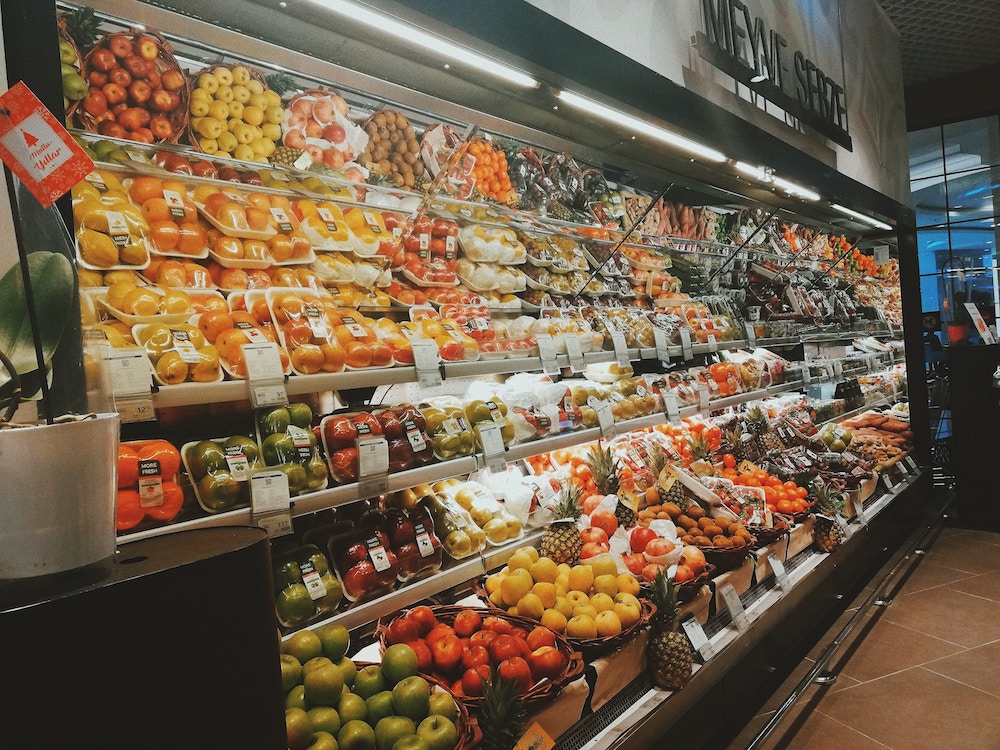
Efforts to make the shopping experience more relationship-centred
Slow shopping
Slow Shopping initiatives in Sainsbury’s, The Cooperative and Tesco offer a more relaxed, assisted shopping experience at certain times – typically weekday afternoons – to make shopping easier for elderly shoppers and customers with mental-health needs, anxiety, dementia and autism. Sainsbury’s, for example, offers chairs at the end of aisles, help desks and shopping assistants, and The Cooperative and Tesco allow extra time for people to checkout. Slow Shopping empathises with people’s needs and tailors services accordingly. It also encourages staff to stop and chat with customers – to have interactions with them as people rather than just revenue streams. These seemingly minor changes allow customers for whom supermarkets are important social environments, but who have needs that hinder accessibility, to realise the social benefits of shopping whilst feeling welcomed, not pressured, for who they are. Although in a small way, this offers a more relational supermarket experience for those who desire it.
Initiatives at Sainsbury’s, The Cooperative and Tesco Maryhill have been widely praised by customers, staff, researchers and third-sector organisations such as Dementia UK, although their positive social impact hasn’t been quantified. This praise stems from how Slow Shopping makes shopping easier for vulnerable people. Research shows online shopping, though convenient, can contribute to social isolation, especially among the elderly. The Alzheimer’s Society has also found:
%
of the 850,000 British people with dementia list shopping as their favourite activity, but 25% stop once diagnosed
Free taxis
The Cooperative recently extended a free taxi service for customers with limited mobility or young children. A taxi home, free within five miles, is available to any customer who has spent at least £25 but faces barriers to carrying their shopping home. Like Slow Shopping – and again in a small way – this relates to customers as people with needs beyond locating baked beans and checking out.
The Cooperative’s free taxi service is popular, and has been extended following positive customer feedback. Chris Conway, Head of The Cooperative Food Digital, says some customers have called it a lifeline against social isolation. The Cooperative also says free taxis makes business sense. This seems counter-intuitive, but their trial stores have reportedly seen a tenfold basket-spend increase against average consumer shopping trends in convenience stores.
A culture of kindness
The Tesco store in Maryhill, Glasgow, shows how a welcoming supermarket culture helps foster meaningful relationships and realise social benefits. It has attracted a lot of attention partly for this reason, and partly because similar relationship-centred efforts are scarce. Staff, customers and researchers agree that such a culture has seen Tesco Maryhill become a valued community hub. This development has been somewhat organic, relying partly on a close-knit neighbourhood and longstanding staff members. But management has also implemented policies incentivising staff autonomy and a proactive ‘Can we?’ approach to customer interaction, including KPIs relating to kindness over profit. Many decisions, meanwhile, are made collaboratively with staff. Finally, the store cafe gives this community spirit a physical space in which to thrive.
The Joseph Rowntree Foundation’s qualitative research on Tesco Maryhill reveals a range of social benefits appreciated by customers, including increased social contact, more resilient communities and a sense of empowerment. Many customers use the store to socialise, and overwhelmingly prefer the informal, optional nature of the hub.
Staff also felt more empowered and trusting through their kindness, despite believing themselves to be doing ‘what anybody else would do’. This represents a tangible benefit for Tesco.
Efforts to create meaningful relationships beyond the supermarket
Community connectors
Many major UK supermarkets are grant funders. This is too general to be considered relationship-centred design per se. But one feature worth noting is the use of supermarket employees, such as Tesco’s Community Champions, or members, like The Cooperative’s Member Pioneers, to develop links between supermarkets and local community organisations to help better target supermarkets’ community work.
The Cooperative’s Member Pioneers now number over 300. Tesco Community Champions supported over 1,000 large community events and projects in 2016/17, contributing an estimated 240,552 hours (or £3m) of volunteering time. Considering that Tesco’s Bags of Help funding scheme has awarded £71 million to 23,000 community projects since 2015, an unquantified but sizeable impact of supermarket community connectors is ensuring this large-scale grant funding is more targeted and effective.
Research and advocacy
Given their reach, supermarkets also help understand and advocate the importance of relationships. For example, Sainsbury’s and The Cooperative have been involved in developing nationwide wellbeing indexes, both featuring social relationships as core components.
The impact of Sainsbury’s and The Cooperative’s wellbeing indexes has not been quantified. But both are open-source resources supermarkets and other organisations can use to better understand and tackle social problems.
Offering community spaces
72 UK Tesco stores have specially designed Community Spaces that community groups can use for free. Marks and Spencer, in partnership with Frazzled Cafe, similarly offers its cafe spaces to host regular, safe ‘talk in’ sessions for people feeling ‘frazzled’.
Tesco provided an estimated half a million pounds worth of space for community groups in 2016/17, including 119,808 staff volunteer hours at an estimated value of £1.7 million
What can we learn from supermarkets?
A few things that stand out to us about the supermarket initiatives we’ve described above:
Creating a warm, welcoming atmosphere encourages new connections
Community connectors help foster relationships between organisations and people
Public space is really important
Want to know more?
Relationship-centred shopping experiences
- The Rutland & Stamford Mercury has reported on a local Cooperative’s Slow Shopping initiative.
- Sky News has reported on the recent extension of the Sainsbury’s Slow Shopping initiative.
- The Independent has published a summary of the University of Hertfordshire’s Slow Shopping research.
- Convenience Store has reported The Cooperative’s extended free-taxi scheme.
- The Joseph Rowntree Foundation has conducted in-depth qualitative research on Tesco Maryhill.
Fostering relationships beyond the supermarket
- Tesco commissioned KPMG to conduct independent research into Tesco’s community impact in 2016/17.
- The Frazzled Cafe website explains the idea in more depth.
- The Cooperative website includes short and long reports on its wellbeing index.
- Sainsbury’s also offers a report detailing its index.
- The Cooperative website details its Member Pioneers scheme.

